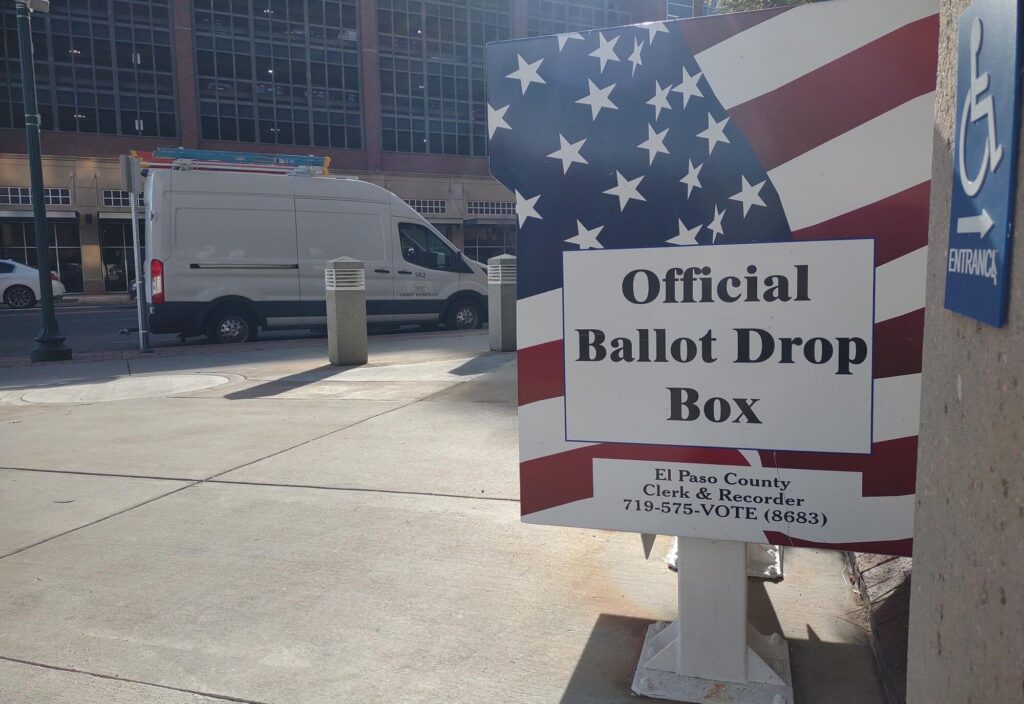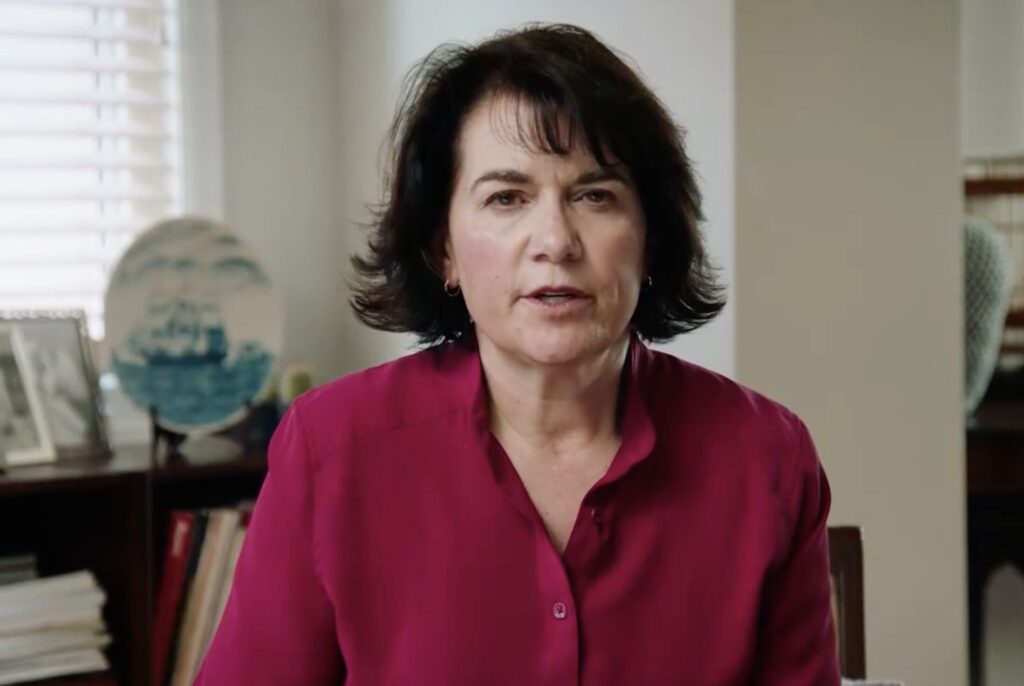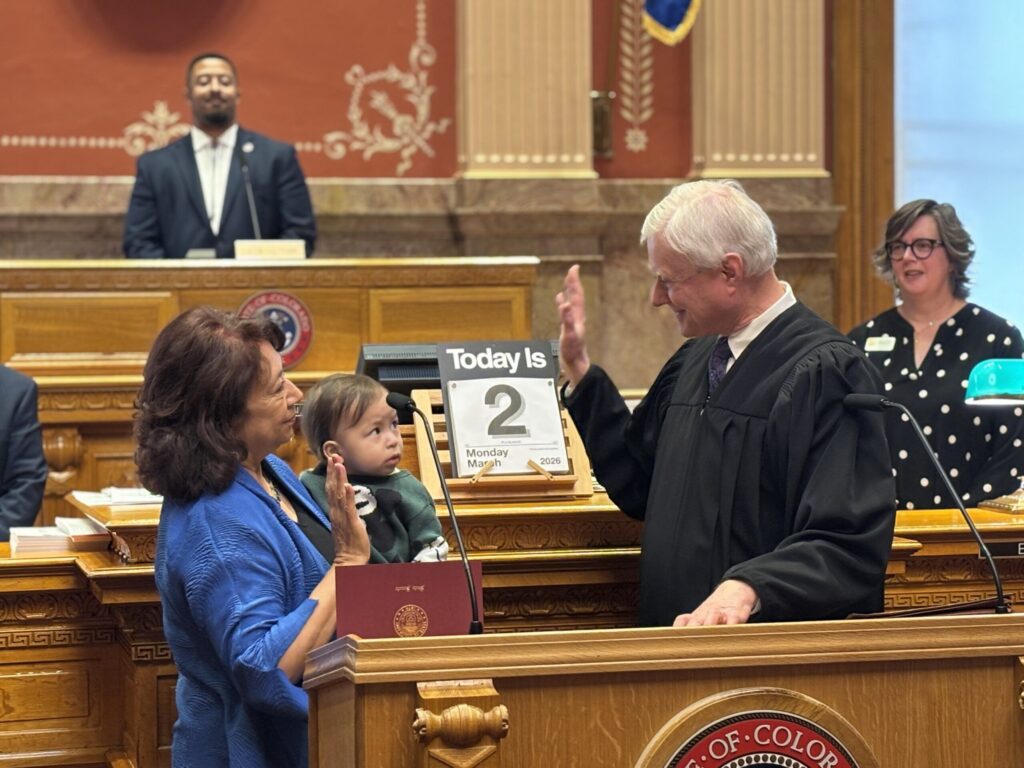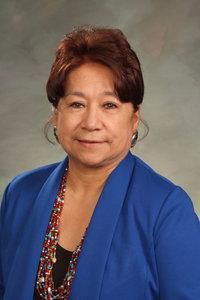Campaign to put recreational marijuana sales on Colorado Springs ballot collects 98,000 signatures

A local campaign to legalize and tax recreational marijuana sales in Colorado Springs turned in 98,000 signatures to city officials Friday, far more than the number needed to place the questions on the ballot in November.
The city clerk has a month to verify the signatures and decide whether two companion marijuana questions will be placed before voters, but spokesman for the Your Choice Colorado Springs campaign Anthony Carlson feels confident the questions will appear, because more than 2.5 times the signatures necessary were submitted.
“We fully expect we have exceeded that minimum threshold that we need,” he said.
If approved by voters, the first question would allow 118 existing medical marijuana stores to transition to selling recreational marijuana. The shops could choose to sell both or transition completely to recreational marijuana, he said. The second question would place a 5% tax on marijuana sales to fund post-traumatic stress disorder services for veterans, mental health services for the whole community and public safety, including police, fire and addressing the opioid epidemic.
Carlson said those who signed petitions said they supported the measure because recreational marijuana is being used in Colorado Springs – the community is just not collecting any of the tax revenue.
“We have cannabis in our community, but we don’t get the benefits to help provide the additional services,” he said.
The City Council would be in charge of appropriating the revenue generated by the sales, and a citizens advisory board would oversee the distribution of the funds. The city does not provide health services, so those funds could be distributed through grants but that system has not been finalized, Carlson said.
The campaign claims that every year $10 million to $15 million in tax revenue is lost to other communities, because the city does not allow recreational marijuana sales.
Carlson said he expects the pro-marijuana question campaign will continue while the clerk reviews signatures, rather than waiting.
Mayor John Suthers said the campaign echoes promises the marijuana industry made in 2012 that revenues would fix schools and fix roads, eliminate the black market, and cut back on youth access. Those promises have not been fulfilled, he said.
“Bottom line: We can barely garner enough money to regulate marijuana,” he said.
It could also hurt the community in the fight to keep U.S. Space Command from moving to Huntsville, Ala., the mayor said.
“I think it’s still the case if we are in basing competitions with a community that does not have legalized marijuana they are going to beat it over our heads,” he said.
Greater recreational access to marijuana will also further normalize its use in the minds of teenagers, Suthers said, and in some cases, it functions as a gateway drug.
“When you legalize it, you tell kids there is no problem with it,” he said.
Henny Lasley, cofounder and executive director of One Chance to Grow Up, a nonprofit focused on good marijuana policy to protect kids, agreed, saying that increased visibility and availability of marijuana can create the perception in kids’ minds that it is safe, when it is not good for a developing brain.
Statewide, the recent results from Healthy Kids Colorado showed that marijuana use fell from 2019, when about 21% of students reported using it within 30 days, to 2021, when 13.3% reporting using it within 30 days. The survey also showed the percentage of students who thought it was wrong for them to use marijuana was up from 59% in 2019 to 64% in 2021.
Lasley said the results are encouraging, but “it’s not time to take our foot off the gas” in terms of promoting the truth.
The statewide survey did not gather enough data in El Paso County to report marijuana use in teenagers, partially because parents were concerned the questions were too invasive and not confidential and because of pandemic disruptions,
The Gazette previously reported. However, El Paso County Public Health epidemiologist Fadi Youkhana said the county tends to mirror statewide trends.














